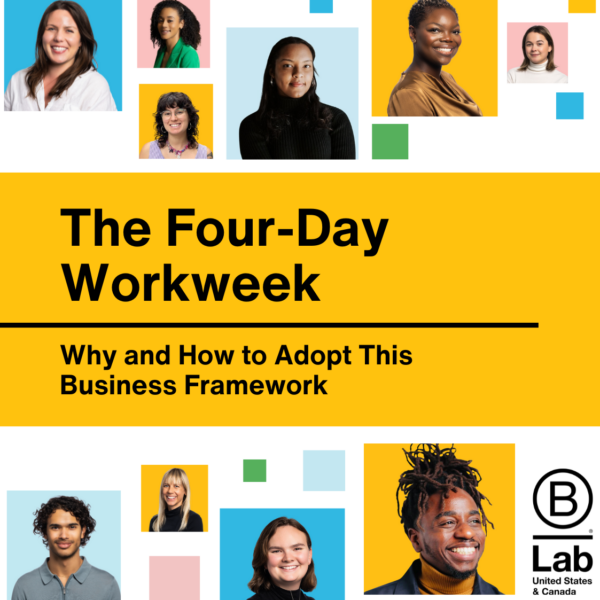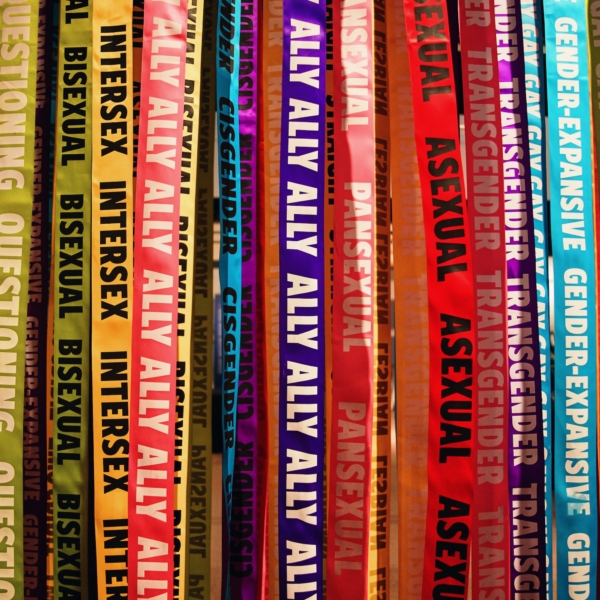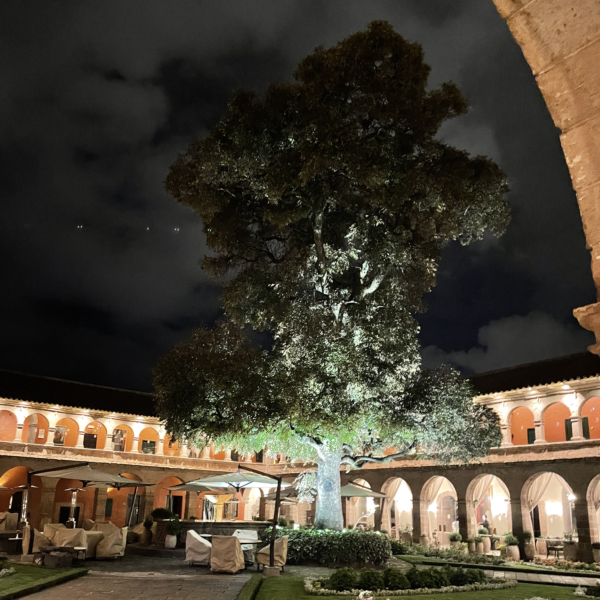How a Four-Day Workweek Can Empower Authentic Living and Gender-Affirming Care
November 20, 2024
This article is a personal perspective from an employee at B Lab, the nonprofit behind Certified B Corporations. In this series, we invite B Lab employees to share their experiences, inspiration, hopes, and challenges as they work toward a more inclusive and regenerative world. This edition of B Lab Voices is from Orion Arrizón, Executive Operations Manager at B Lab U.S. & Canada.
Ask yourself: Who would you be if you had more time to breathe deeply? Can you imagine a life where the ever-present urgency of work does not consume your entire week? What would you do with additional space to focus on your mental and physical well-being? What kind of relationships, projects, or even aspects of yourself could you nurture?
These were the questions I asked myself when the B Lab U.S. & Canada team decided to launch our pilot of the four-day workweek during our July 2023 all-staff retreat in Palm Coast, Florida. When I first interviewed for my role at B Lab, I distinctly remember talking about looking for a workplace where I can truly grow into myself — professionally, of course, but most importantly, in a physical sense. I’ve known I was transgender since elementary school, but like most queer people in this world, I’ve had little to no access to medical treatments that could help me feel what many folks take for granted in their lives — a sense of feeling at home in my body and my alignment with my gender expression. For decades, I’ve lived with debilitating feelings of dysphoria — not recognizing myself in the mirror, staying silent because the pitch of my voice unsettled me, staying at home and missing social opportunities because my clothes just wouldn’t fall the way I needed to feel more comfortable. For decades, I’d not been living my life on my own terms. Until the four-day workweek pilot.
The four-day workweek is often discussed in terms of productivity and work-life balance, but for queer and gender non-conforming people like myself, it can be far more: It can be a form of gender-affirming care. During the four-day workweek trial at B Lab U.S. & Canada, I was given the gift of space, time, and capacity to navigate the medical and judicial systems of the U.S.—two highly bureaucratic and often hostile spaces for Queer, Trans, Black, and Indigenous People of Color (QTBIPOC). With an extra day each week, I found myself able to finally schedule consultations, manage paperwork, and attend appointments related to legally changing my name and pursuing top-surgery. These processes often came with immense emotional and administrative burdens that I never would have been able to squeeze into the “traditional” weekend — especially when you consider that many government agencies are not open on the weekends. The simple but profound act of having more time allowed me to not only access care but also tend to my mental health as I faced the exhausting barriers that stand in the way of gender-affirming treatment.
The importance of time cannot be overstated, especially when accessing gender-affirming care is becoming more difficult in the current socio-political landscape. Recent research shows that 51% of transgender and non-binary adults across the U.S. report barriers to accessing gender-affirming care, with reasons ranging from lack of insurance, discrimination and intentional misgendering, to facing outright rejection from hospital staff due to the rise of anti-trans sentiment that has accompanied the resurgence of right-wing authoritarianism — even if they go into the doctor’s office for a non-gender related health concern. Legislative attacks on trans rights, the closing of gender-affirming care clinics like Planned Parenthood, and widespread discrimination in the medical field make accessing care increasingly difficult, and in some places in the U.S., dangerous. The mental load of navigating these systems is further compounded by judicial hurdles, such as complicated jargon used on legal name change and gender marker change forms, which many trans and non-binary people must navigate on their own if they’re not able to receive assistance from spaces like the Sylvia Rivera Law Project. In a climate of rising fascism and increased anti-trans sentiment across Turtle Island, the four-day workweek can serve as a lifeline, granting queer people the time and mental bandwidth we need to fight these battles on multiple fronts, starting with experiencing true liberations in our bodies, and feeling safe and confident in our own skin.
Now that B Lab U.S. & Canada has officially adopted the four-day workweek, I’ve come to fully understand that for me, this movement isn’t just about working less — it’s about rediscovering parts of myself that I’ve been conditioned to neglect in favor of focusing on “the grind.” So for folks wondering if this shift is worth it, I have one final question: What could be more powerful than gifting yourself—and everyone in your workplace—the true, authentic you?
Related resources

Why and How to Adopt This Business Framework
This guide from B Lab U.S. & Canada explores how the four-day workweek is gaining traction as a long-term framework for worker resilience and bottom-line strength. It offers business examples, lessons, and resources to help organizations make the shift.
Sign Up for our B The Change Newsletter
Read stories on the B Corp Movement and people using business as a force for good. The B The Change Newsletter is sent weekly.




